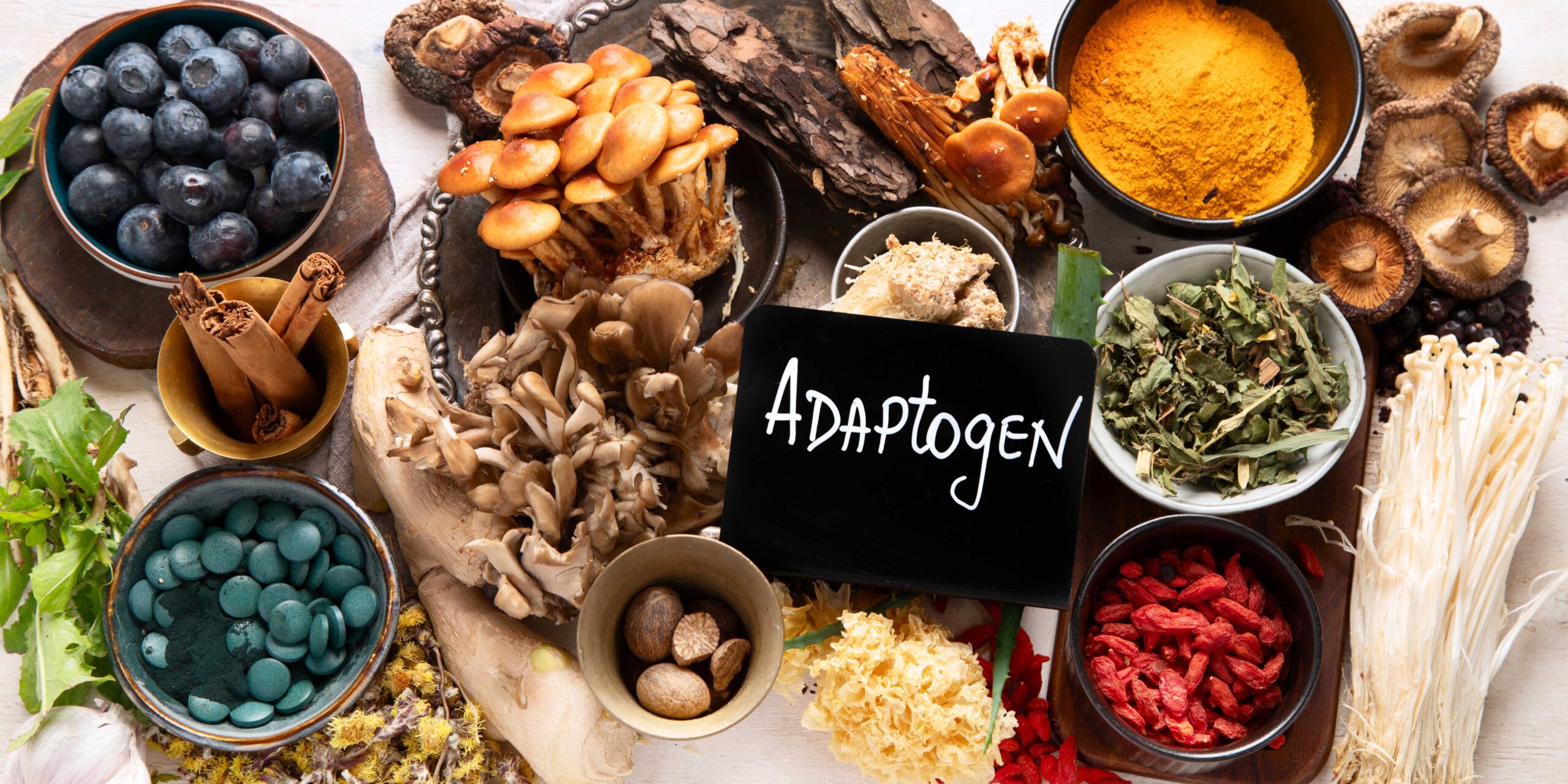
Adaptogens 101
Picture this: You’re dragging yourself through another exhausting day, your mind racing with a thousand worries while your body screams for rest. You reach for that fifth cup of coffee, knowing it’ll only make your hands shake and your sleep worse tonight.
Maybe you’ve tried the prescription route, those little pills that promise relief but come with side effects that sometimes feel worse than the original problem. The dry mouth. The weight gain. The foggy head that makes you feel like you’re living in a haze.
Sound familiar? You’re not alone. Millions of people are trapped in this cycle, bouncing between pharmaceuticals that mask symptoms and caffeine that just digs the hole deeper.
But what if I told you that nature has been holding the answer to your stress all along, and it’s not another synthetic pill with a laundry list of side effects?
Welcome to the world of adaptogens, the herbal powerhouses that have kept traditional healers’ secrets for thousands of years. These remarkable plants don’t just mask your symptoms or force your body into submission.
They actually help your body adapt to stress and find its natural balance again. It’s the difference between putting a Band-Aid on a wound and actually letting it heal from the inside out.
What Makes Adaptogens Different from Pills?
Here’s what sets adaptogens apart from the pharmaceutical approach: they work with your body, not against it. According to the U.S.
Department of Veterans Affairs, true adaptogens must meet three specific criteria: they should be nontoxic at normal doses, support your body’s ability to cope with stress, and help restore homeostasis by balancing over- or under-activity of your physiological systems.
Think about that for a moment. These plants don’t just push your body in one direction. They’re intelligent enough to bring you back to balance, whether your system is running too hot or too cold.
Scientists believe many adaptogens work by modulating your hypothalamic-pituitary-adrenal (HPA) axis, essentially the master control center for your stress response, immunity, digestion, metabolism, and mood.
When your HPA axis is out of whack, everything suffers. Your sleep goes haywire. Your digestion rebels. Your mood plummets. Adaptogens help restore order to this chaos.
Another fascinating hypothesis suggests these herbs bolster your body’s antioxidant defenses right where it matters most: at the cellular level in your mitochondria.
That’s the powerhouse of your cells, where energy is made. When your mitochondria are protected and functioning well, you feel it in every aspect of your life.
The Dark Side of Store-Bought Supplements (And How to Protect Yourself)
Before we dive into the specific adaptogens that can transform your health, you need to know about a serious problem plaguing the supplement industry. Many commercial products promise stress relief or vitality yet contain inconsistent doses, contaminants, or worse.
The VA cautions that herbal supplements are largely unregulated in the United States. That means products may be adulterated or mislabeled, and active ingredients can vary dramatically from bottle to bottle, sometimes even from capsule to capsule in the same bottle.
ConsumerLabs and other independent testing organizations have uncovered supplements spiked with pharmaceuticals or heavy metals. You could be poisoning yourself while trying to heal.
This is exactly why you need to be a savvy consumer. When purchasing adaptogens, look for USP, NSF, or GMP seals. These certifications mean the product has been independently tested for purity and potency.
Choose standardized extracts whenever possible, this ensures you’re getting a consistent dose of the active compounds.
And please, always talk to a healthcare provider, especially when combining multiple herbs or using them alongside prescription medications. Natural doesn’t automatically mean it can’t interact with other substances you’re taking.
Your health is too precious to gamble with questionable products. Do your homework, invest in quality, and protect yourself.
You don’t need fancy equipment or expensive ingredients to make powerful herbal remedies at home. The truth is, you’re probably stepping over medicinal plants every single day without even realizing it.
Most people think making tinctures and extracts requires complicated distillation equipment, professional training, or hard-to-find ingredients.
That’s exactly what supplement companies want you to believe, it keeps you buying their overpriced products. But our grandparents made these remedies in their kitchens with nothing more than mason jars, alcohol, and the plants growing around their homes.
I found a video that shows you exactly how to identify common medicinal plants around your property and transform them into potent remedies using simple household items. No expensive equipment. No specialty ingredients. Just practical knowledge that puts the power back in your hands.
The Adaptogens That Actually Have Science Behind Them
Now let’s get to the good stuff, the adaptogens with real research backing their benefits. These aren’t just folk remedies passed down through stories. These are plants with clinical trials, peer-reviewed studies, and measurable results.
Ashwagandha: Your Sleep and Stress Solution
If you’re tossing and turning at 3 AM with your mind replaying every awkward conversation from the past decade, or if anxiety has taken up permanent residence in your chest like an unwelcome houseguest, ashwagandha might become your new best friend.
This evergreen shrub, used in Ayurvedic medicine for thousands of years, has earned its reputation as one of the most powerful stress-busting adaptogens on the planet. The root is rich in compounds called withanolides and alkaloids, these are the active ingredients that make the magic happen.
Here’s where the science gets exciting. A 2021 systematic review analyzed seven randomized controlled trials with a total of 491 participants. The results?
Taking 500-600 mg of ashwagandha daily for 6-8 weeks significantly reduced stress and anxiety, improved sleep quality, and lowered cortisol levels compared to placebo.
We’re not talking about feeling slightly better. We’re talking about real, measurable improvements in the stress hormone that’s been wreaking havoc on your system.
Later trials confirmed these findings and went even further, showing improvements in memory alongside the stress reduction and better sleep. Imagine waking up refreshed, remembering where you put things, and facing your day without that crushing weight of anxiety.
The sleep benefits alone are worth paying attention to. In a double-blind Indian study, researchers gave 150 participants either ashwagandha or placebo for six weeks.
The results were remarkable: ashwagandha improved sleep quality in 72% of participants compared with just 29% of the placebo group. Participants experienced increased sleep efficiency, longer total sleep time, and reduced sleep latency, that’s the time it takes you to fall asleep after your head hits the pillow.
A meta-analysis of five trials concluded that ashwagandha (at doses of 600 mg or more per day for at least 8 weeks) modestly improves sleep. You’ll fall asleep faster, sleep more soundly, and actually wake up feeling like you’ve rested.
How to use it in your life: Start with 500-600 mg daily, preferably in the evening if sleep is your main concern. Take it with food to minimize any potential stomach upset. Give it at least 6-8 weeks to build up in your system and work its magic, this isn’t a quick fix, it’s deep healing.
Here’s the problem with most ashwagandha supplements you’ll find at your local health store: they’re sitting on shelves for months, sometimes years, slowly losing their potency. By the time that bottle reaches your kitchen cabinet, the active withanolides have degraded significantly.
And that’s if you’re lucky enough to get a product that actually contains pure ashwagandha, many are loaded with fillers, preservatives, and questionable additives that dilute the very benefits you’re seeking.
The best way to preserve the therapeutic power of ashwagandha is through dual extraction methods and using 100% organic roots.
After trying countless products that left me disappointed, I finally found a source that actually delivers results you can feel from the first drops. It’s not some massive corporate brand with flashy marketing. It’s a small-batch herbalist operation that prioritizes potency over profit margins.
If you’re serious about actually experiencing what ashwagandha can do for your sleep and stress, get the tincture that works here.
Ashwagandha is generally well-tolerated for up to three months, though some people experience mild stomach upset or drowsiness (which can actually be a benefit if you take it at night).
There have been rare cases of liver injury reported, so if you have liver issues, talk to your doctor first. Pregnant women should avoid it, and if you have thyroid or hormone-sensitive conditions, consult your healthcare provider since ashwagandha can affect these systems.
Rhodiola Rosea: Your Burnout Remedy
Feeling completely fried by work? Like you’ve given everything you have and there’s just nothing left in the tank? Rhodiola, an arctic herb traditionally used for fatigue and endurance in harsh climates, has shown real promise for people in exactly your situation.
Here’s the honest truth: despite all the marketing claims you’ll see, the NIH concludes there is insufficient reliable evidence to determine rhodiola’s effectiveness for any health condition with certainty.
Research quality is often low to moderate. But, and this is an important but, the studies that do exist are intriguing enough to warrant attention.
A systematic review of clinical trials found that rhodiola (200-576 mg per day) improved mental performance and reduced fatigue in individuals with burnout or fatigue syndrome.
In multiple open-label studies, participants reported improvements in alertness, mood, and calmness over 8-12 weeks of supplementation. The review also summarized small trials showing antidepressant effects in generalized anxiety disorder and mild to moderate depression.
The catch? Many studies lacked placebo controls, which means the improvements could partly be due to the placebo effect—people feeling better because they believe they’re taking something helpful. The NIH cautions that most evidence remains preliminary.
How to use it in your life: If you’re experiencing burnout (not just regular tiredness, but the soul-crushing exhaustion that comes from prolonged stress), rhodiola might offer support. Take 200-576 mg daily, preferably in the morning since it can be stimulating for some people.
Potential side effects include dizziness, headaches, insomnia, and dry mouth. Rhodiola can interact with warfarin, phenytoin, and other medications, so consult a healthcare provider before adding it to your routine.
Lion’s Mane: For Your Foggy Brain
Can’t remember where you put your keys for the third time this week? Struggling to focus during important tasks? Feel like your brain is wrapped in cotton wool? Lion’s mane might be exactly what your tired, stressed-out brain needs.
This distinctive white, shaggy mushroom (it really does look like a lion’s mane) is consumed as food in East Asian cuisine and has been used medicinally for anxiety, cognitive decline, and digestive issues.
But unlike some traditional remedies that remain stuck in the realm of folklore, lion’s mane has some genuinely exciting research behind it.
A 2023 randomized double-blind trial in healthy adults found that participants given lion’s mane showed significantly faster reaction times on the Stroop test just one hour after a single dose, with a significant treatment-by-time interaction (p = 0.005—that’s statistician-speak for “this is real, not a fluke”). After 28 days of supplementation, participants reported a trend toward lower stress scores compared with placebo.
Memorial Sloan Kettering summarizes other small trials indicating improvements in memory and mood in overweight individuals and older adults with mild cognitive impairment.
That’s the stage before dementia where people notice cognitive changes but can still function independently, exactly when intervention could make the biggest difference.
What makes lion’s mane so special? It contains bioactive compounds called hericenones and erinacines that actually cross the blood-brain barrier (most compounds can’t do this, your brain has serious security) and stimulate nerve growth factor synthesis.
Nerve growth factor is exactly what it sounds like: it helps your neurons grow, connect, and repair themselves. These compounds also exhibit anti-neuroinflammatory and neuroprotective effects in animal models.
How to use it in your life: Take lion’s mane as a supplement, or better yet, enjoy it cooked in meals if you can find it fresh or dried. It has a delicate, slightly seafood-like flavor that’s delicious in stir-fries or soups.
Start with a lower dose and work your way up to see how your body responds. For cognitive benefits, consistency matters more than massive doses, think of it as daily brain food.
The absolute best way to get lion’s mane is to forage it yourself in the wild and make your own preparation at home. But let’s be real: do you have lion’s mane growing conveniently near your house?
Maybe, if you’re incredibly lucky. More likely, you’d need to spend hours trekking through forests, hoping to identify it correctly (misidentification can be dangerous), and then invest 4-6 weeks waiting for your tincture to properly extract all those brain-boosting compounds.
When brain fog hits and you need mental clarity now, before that important meeting or when you’re trying to focus on a crucial project, you can’t exactly drop everything and go mushroom hunting.
Even if you buy fresh organic mushrooms, they’re expensive, and you still face that 4-6 week extraction timeline. The practical solution?
I’ve been using a dual-extracted lion’s mane tincture that’s ready to work immediately. It’s made by herbalists who do the foraging and extraction work so you don’t have to.
Save yourself the time and effort here.
Asian Ginseng: The Classic Adaptogen
Used for centuries to boost vitality, Asian ginseng (Panax ginseng) is often considered the prototype adaptogen—the standard by which others are measured. If you’ve heard of any adaptogen, it’s probably ginseng.
A government fact sheet notes that research is inconclusive, but some studies suggest ginseng may lower blood glucose and improve immune function.
Clinical trials vary widely in design and quality, some show reduced frequency of colds and improved immune markers when taken during flu season, while others show no significant effects.
There is insufficient high-quality evidence to support the broad claims you’ll see on supplement bottles.
How to use it in your life: If you want to try ginseng, use it seasonally during cold and flu season rather than year-round. Pay attention to how your body responds.
Side effects may include headaches, sleep problems, digestive upset, and allergic reactions. Ginseng may affect blood sugar levels, so if you’re diabetic or taking blood sugar medications, monitor closely. Long-term safety is uncertain, so cycling on and off might be wise.
Reishi: The Immunity Guardian
Known as Ling Zhi in Chinese medicine and dubbed the “mushroom of immortality,” reishi isn’t just romantic folklore from ancient healers. This wood-growing mushroom has been used for thousands of years to promote longevity and support immune function, and modern science is starting to understand why.
Reishi contains powerful compounds called polysaccharides (specifically beta-glucans) and triterpenoids that activate your immune system’s frontline defenders.
Beta-glucans bind to receptors on your macrophages and natural killer cells, enhancing immune surveillance, essentially putting your internal security system on high alert. The triterpenoids show anticancer activity in laboratory studies.
Now, here’s an important point: medicinal mushrooms like reishi are not FDA-approved drugs. They’re marketed as dietary supplements, which means they’re not meant to treat, cure, or prevent disease. But that doesn’t mean they’re not doing anything beneficial in your body.
Studies in lung cancer patients using a polysaccharide product called Ganopoly alongside chemotherapy showed no significant overall immune changes.
However, a year-long study in patients with colorectal adenomas (precancerous polyps) taking reishi mycelial extract found fewer adenomas and smaller total adenoma size than the control group.
These findings suggest potential chemopreventive effects—helping prevent problems before they start—but the research remains preliminary.
Let’s talk about the economics of immune support. You could buy those expensive reishi capsules from big supplement companies, the ones spending millions on advertising and packaging while skimping on the actual mushroom quality.
Or you could try buying dried reishi to make your own preparations, but high-quality wild or organic reishi can cost $40-60 per pound, and you’ll still need the knowledge and equipment to extract it properly.
Here’s what makes financial sense: a concentrated reishi tincture from a trusted herbalist source gives you maximum immune support per dollar spent.
You’re getting properly extracted beta-glucans and triterpenoids, not just ground-up mushroom powder that passes through your system barely absorbed.
The Reishi Tincture I use comes from a small operation that sources directly from growers, cutting out the middlemen and their markups. You get pharmaceutical-grade potency without pharmaceutical prices.
Make the smart investment here.
How to use it in your life: Incorporate reishi as a tea (it has an earthy, slightly bitter taste), tincture, or capsule. Many people take it daily as a long-term immune tonic rather than waiting until they’re sick. It’s about building resilience over time.
Reishi is generally well-tolerated, though some people experience dry mouth or digestive upset. If you have immune conditions like autoimmune diseases or you’re taking immunosuppressants, talk to your doctor before using reishi.
Remember, this mushroom actively modulates immune responses, so you want to make sure that modulation works in your favor.
Holy Basil: Your Daily Resilience Booster
Holy basil, known as tulsi in India, is revered in Ayurveda for its ability to promote resilience and spiritual well-being. It’s considered so sacred that many Hindu households grow it in their courtyards and use it in daily prayers. But beyond the spiritual significance, holy basil has some solid research supporting its use.
A 2017 systematic review identified 24 human studies reporting therapeutic effects on metabolic disorders, cardiovascular disease, immunity, and neurocognition.
The review concluded that tulsi may help manage stress, metabolic syndrome, and chronic disease by modulating blood sugar levels, lipid profiles, and immune markers. Remarkably, none of the trials reported significant adverse events.
However, many studies were small and varied in design, so while the findings are promising, more rigorous research is needed to make definitive claims.
How to use it in your life: Holy basil is wonderfully versatile. Enjoy it as a daily tea (it has a slightly peppery, clove-like flavor), take it as a supplement, or even grow it fresh and add the leaves to cooking. Many people find the tea ritual itself to be calming and grounding—a moment of peace in a chaotic day.
Holy basil is generally considered safe when consumed as food or tea. Large doses may lower blood sugar or potentially interfere with fertility, so use caution if you’re on anti-diabetic medications or actively trying to conceive.
Adaptogens VS Lab-Made Synthetic Pills
Here’s what the pharmaceutical industry doesn’t advertise: most of their bestselling medications were originally derived from plants. Aspirin came from willow bark. Digoxin from foxglove. Morphine from poppies.
They isolated the active compounds, synthesized them in labs, patented them, and now charge you a fortune for what nature provided freely for millennia.
Every time you walk into a pharmacy, you’re entering a system designed to keep you dependent. Refills. Co-pays. Insurance battles. Side effects that require more pills to manage.
It’s an endless, expensive cycle that treats symptoms while keeping the root causes untouched. And when a crisis hits, whether it’s a supply chain disruption, a natural disaster, or an economic collapse, those pharmacy shelves empty fast. Then what?
What if you could build your own apothecary at home? Not with expensive equipment or years of training, but with simple, time-tested remedies that actually work. Dr. Nicole Apelian survived 57 days alone in the wilderness using nothing but the plants around her.
She’s compiled 250+ remedies in The Forgotten Home Apothecary, remedies like:
- The Brain Booster for memory, clarity, and focus when you need to be sharp
- The Painkiller in a Jar made from wild lettuce—nature’s answer to opioids, but legal and safe
- The Autoimmune Tincture that got Dr. Nicole out of her wheelchair
- Amish Amoxicillin for strengthening your immune system against infections
- The Sleep Remedy So Effective It Should Probably Be Illegal
- Heavy Metal Detoxifier to cleanse toxins from your bloodstream
- Nature’s Antibiotic ointment for cuts, wounds, and infections
- The Anti-Stress Remedy That Doesn’t Require a Prescription
These are the recipes that kept our grandparents healthy before Big Pharma took over. You don’t need a prescription. You don’t need insurance approval. You just need the knowledge that’s been deliberately forgotten. Take back your health independence here.
Cordyceps: Energy Without the Crash
This one sounds like science fiction: a parasitic fungus that grows on insect larvae in the high mountains of Tibet. Yes, nature is wild, and yes, people have been using this bizarre organism for centuries to combat fatigue and support immune function in Traditional Chinese Medicine.
Clinical studies cited by Memorial Sloan Kettering Cancer Center suggest that cordyceps products improved kidney function and reduced nephrotoxicity (kidney damage from toxins) in renal transplant and chronic kidney disease patients.
Though, the evidence remains insufficient to make definitive claims. Exercise performance studies are mixed, some find benefits, while others show no significant improvements.
So what’s actually happening in your body when you take cordyceps? This fungus stimulates T helper cells, prolongs lymphocyte survival, increases certain cytokines (TNF-alpha and IL-1), boosts natural killer cell activity, and contains a compound called cordycepin that inhibits platelet aggregation.
These mechanisms may underlie the reported immunomodulatory and anti-tumor effects people have experienced.
Here’s what the pharmaceutical industry doesn’t want you to know: you don’t need their synthetic energy pills with their laundry list of side effects and dependency risks.
Cordyceps has been energizing people naturally for centuries, but Big Pharma can’t patent a mushroom, so they’d rather keep you on their expensive, patented stimulants.
The challenge? Authentic cordyceps is notoriously difficult to source. Wild cordyceps from Tibet costs thousands of dollars per pound, and most “cordyceps” supplements on the market use cheap mycelium grown on grain rather than the actual fruiting body.
You need a source that uses proper cultivation methods and dual extraction to unlock cordyceps’ full energizing potential, without the corporate markup or synthetic additives.
I finally found a small herbalist supplier who refuses to compromise on quality just to compete with mass-market brands.
If you’re ready to break free from the Big Pharma energy trap, get real cordyceps here.
How to use it in your life: If you’re dealing with chronic fatigue that isn’t explained by poor sleep or other obvious causes, cordyceps might be worth exploring. Many athletes use it to support endurance, though as mentioned, the exercise studies are mixed.
Avoid cordyceps if you take anticoagulant medications (blood thinners) or anti-diabetic medications, as cordyceps may enhance their effects. People with hormone-sensitive issues should also avoid it because it stimulated testosterone production in mouse studies.
What About Other “Adaptogens”?
You’ll see other herbs marketed as adaptogens—schisandra, astragalus, Siberian ginseng (Eleutherococcus), and more. While these plants have traditional uses and may offer benefits, reliable clinical evidence is scarce. The mechanisms aren’t well understood, and safety profiles aren’t clearly defined.
That doesn’t mean they’re useless, but it does mean you should treat them with caution and consult healthcare professionals before experimenting. Stick with the adaptogens that have at least some research behind them until you’re more experienced.
Your Path Forward: Embracing Nature’s Wisdom
Here’s the truth pharmaceutical companies don’t want you to know: some of the most powerful healing compounds on Earth can’t be patented because they occur naturally.
These three mushrooms: Reishi, Lion’s Mane, and Cordyceps, represent thousands of years of human wisdom now validated by rigorous scientific research. They’re not magic bullets, but they’re something potentially better: sustainable, natural support that works with your body instead of against it.
Now, I know what you’re thinking: “Getting all those mushrooms sounds expensive.” Here’s the thing: I thought the same way until I discovered something incredible. There’s actually a complete bundle that includes all four premium tinctures at a fraction of what you’d pay buying them individually.
We’re talking about the same dual-extracted, fruiting body tinctures I mentioned throughout this article, but packaged together for people who understand that true wellness requires a comprehensive approach. Each bottle maintains the same rigorous quality standards, organic, lab-tested, and potency-guaranteed.
What I love most is that you can bookmark this source and know you’ll always have access to genuine, therapeutic-grade mushroom tinctures whenever you need them. No hunting around, no quality guesswork, just consistent excellence delivered right to your door.
If you’re ready to give your body the complete mushroom support it deserves, you can check out this comprehensive bundle here.
Your Action Plan: From Stressed to Balanced
Adaptogens aren’t magic bullets, let’s be crystal clear about that. They won’t fix a terrible diet, chronic sleep deprivation, or a toxic work environment.
But they offer something pharmaceutical companies can’t: gentle, holistic support that strengthens your body’s own resilience without the side effects that come with most prescription medications.
Here’s how to start your adaptogen journey:
First, identify your primary concern. Are you struggling with sleep? Start with ashwagandha. Brain fog? Try lion’s mane. Chronic fatigue and burnout? Consider rhodiola or cordyceps. Frequent colds? Look into reishi.
Second, start with just one adaptogen. Don’t buy seven different supplements and start taking them all at once. You won’t know what’s working, what’s causing side effects, or how to adjust. Pick one, commit to it, and give it time.
Third, be patient. Most adaptogens need at least 6-8 weeks to build up in your system and create meaningful change. This isn’t like taking an aspirin for a headache. You’re supporting deep, systemic healing. That takes time.
Fourth, listen to your body. Keep a simple journal noting how you feel—energy levels, sleep quality, stress levels, mood. After a few weeks, you’ll start to see patterns. Maybe you’re falling asleep faster. Maybe that afternoon energy crash isn’t as severe. Maybe you’re just feeling more…balanced.
Fifth, buy quality products. Look for those USP, NSF, or GMP seals. Choose brands that provide third-party testing results. Yes, quality supplements cost more, but they actually contain what they claim to contain. Cheap supplements are often just expensive urine—your body can’t use what isn’t there.
Finally, talk to a healthcare provider if you have chronic conditions, take medications, are pregnant, or are breastfeeding. Natural doesn’t mean it can’t interact with other things going on in your body.
The Bottom Line
Your body already knows how to heal itself. Knitting cuts, fighting infections, balancing thousands of reactions every second. But modern life throws obstacles in its way: constant stress, processed food, poor sleep, pollution, endless screens.
Adaptogens help remove those obstacles. They support your body’s innate wisdom, giving it what it needs to restore balance and build resilience. They don’t suppress symptoms or force artificial states, they help you remember what it feels like to be truly well.
You don’t have to accept exhaustion as normal. You don’t have to live with constant anxiety. You don’t have to choose between suffering and side effects.
Nature’s pharmacy has been waiting for you all along. It’s time to walk through those doors.



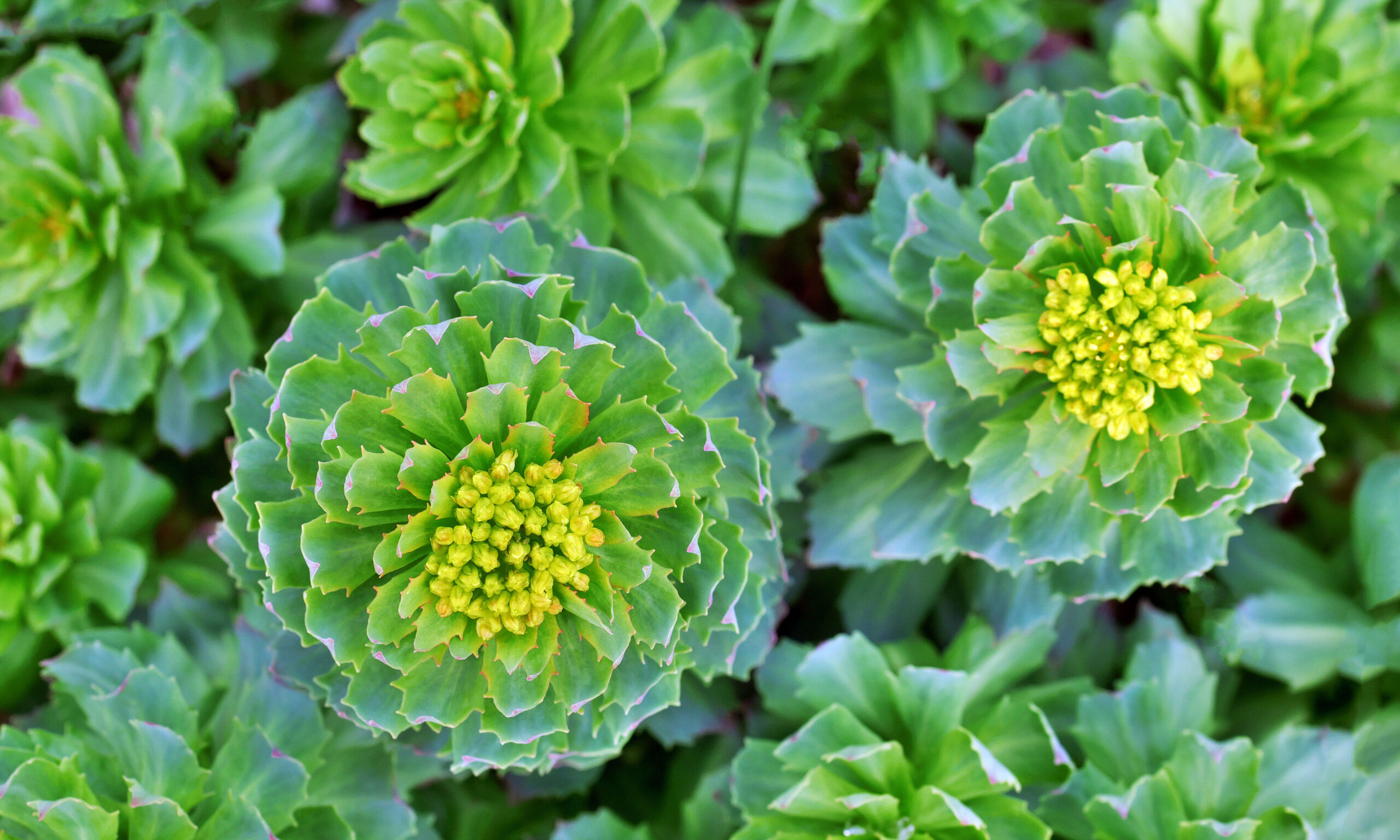
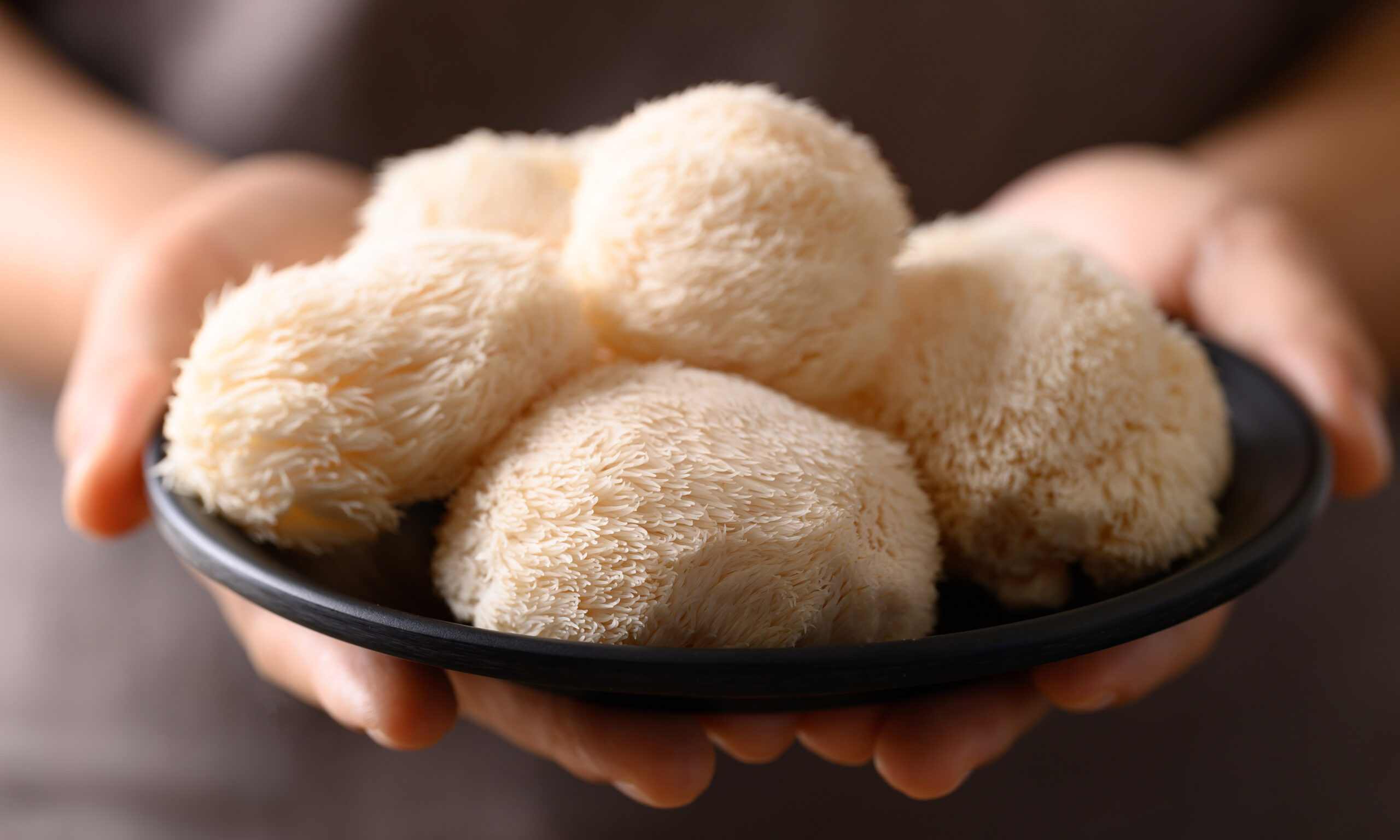

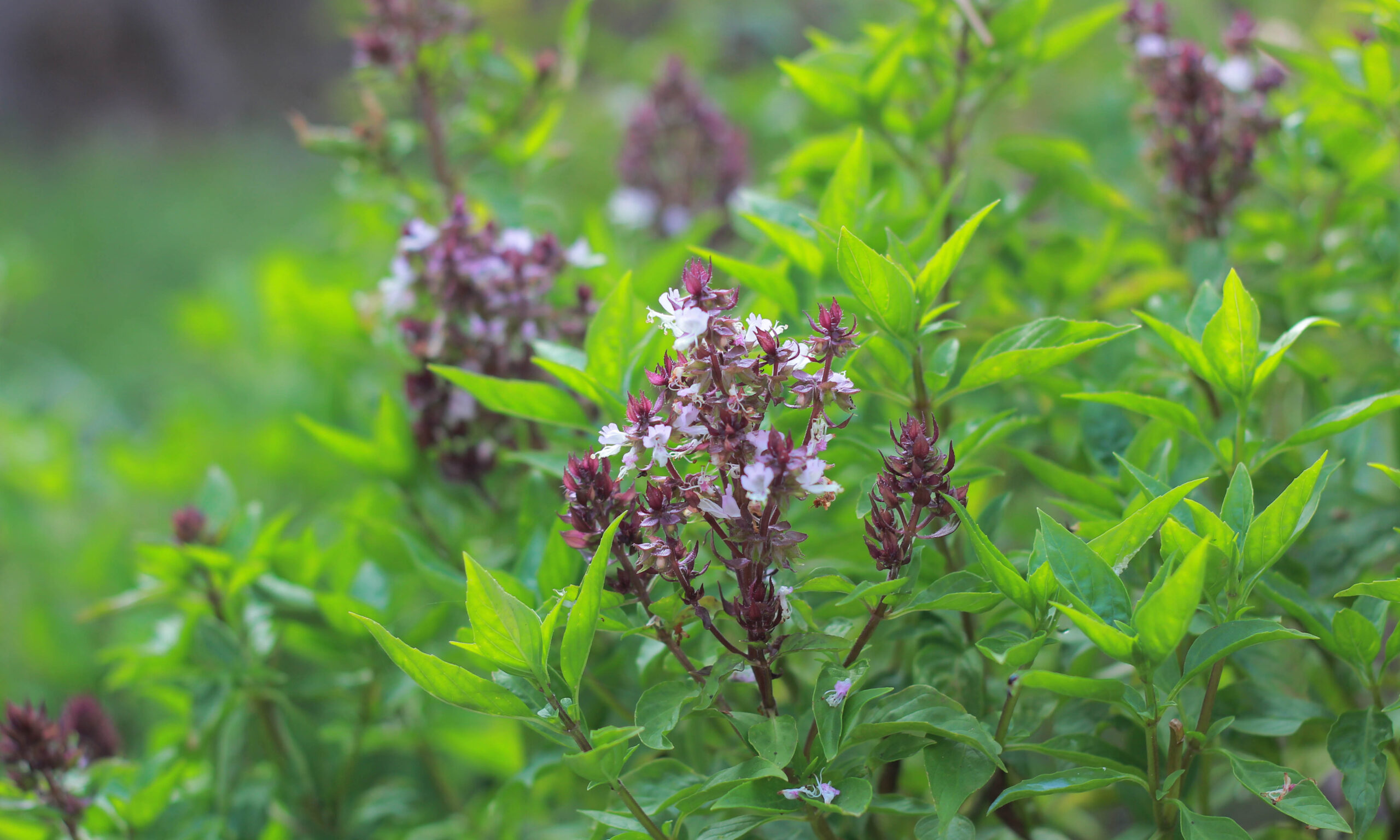

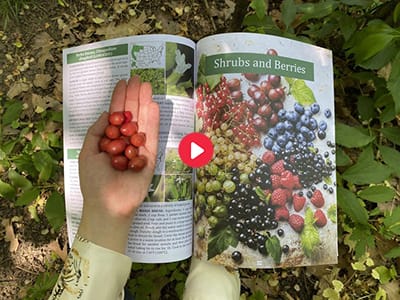
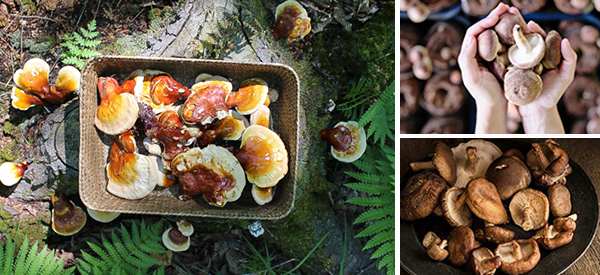
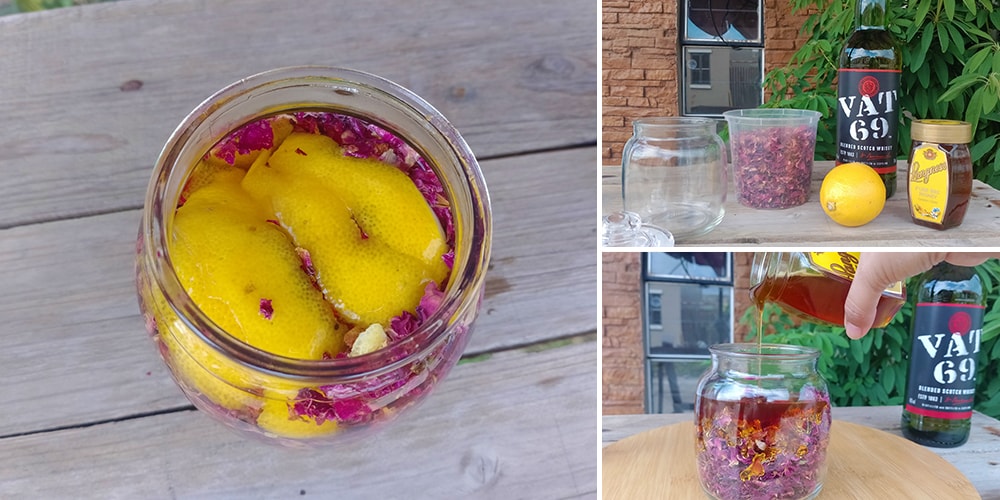
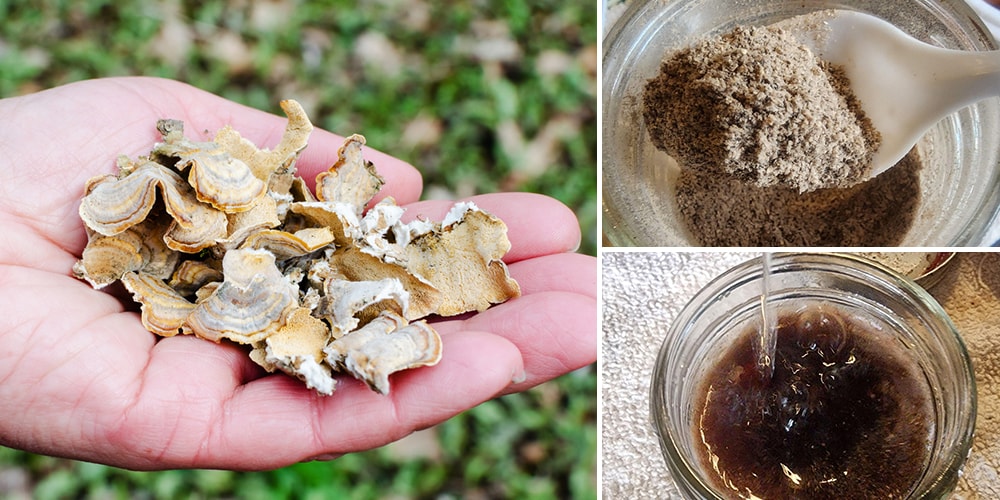
Very sophisticated probably AI writing to downplay the effectiveness of anything one would use instead of mainstream medicines. Aim is to reduce use, reduce purchases of all supplements. Hey, the subtlety goes bye-bye when it comes to the use of the tactic of ‘those big evil companies that sell supplements,’ which is a yuk because we all know about the way the mainstream drug companies make those trillions.
This whole long thing is a thesis in health propaganda, and I educated myself. Thank you